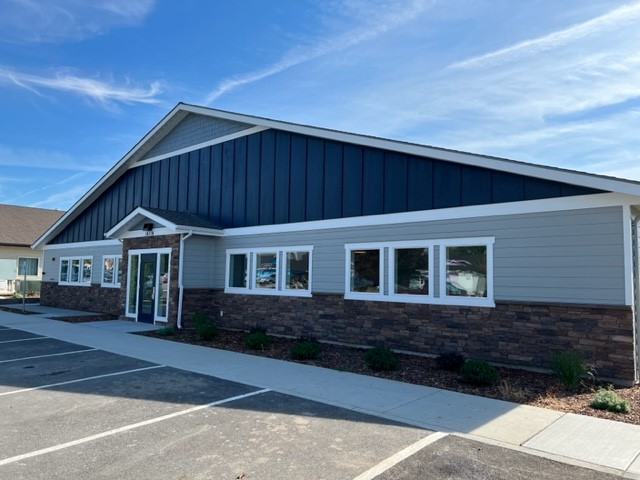
If you or someone you love has alcoholic cirrhosis, you’re not alone. This serious liver condition, caused by heavy alcohol consumption over time, can feel overwhelming, but there’s hope. I’m here to walk you through what alcoholic cirrhosis is, how it affects you, and the steps you can take toward recovery. Let us examine the facts, get to the bottom of the confusion, and focus on solutions that will make your future a lot healthier.
Skip To
Table of Contents
What Is Alcoholic Cirrhosis?
Alcoholic cirrhosis is an alcohol-related liver disease that has reached advanced stages. Years of heavy alcohol use lead to severe scarring of the liver, known as fibrosis. This scar tissue replaces healthy liver cells, impairing its ability to function normally. The mighty liver does not match the pace and faces severe consequences with severe health conditions.
Unlike earlier stages, like alcoholic hepatitis, cirrhosis is often irreversible. However, stopping alcohol intake and seeking treatment can slow the disease’s progression and boost your quality of life. If you’re wondering about alcoholic hepatitis vs. cirrhosis, hepatitis means inflammation in the liver that might come before cirrhosis, but cirrhosis involves permanent scarring.
End the Emotional Pain. Get Your Life Back.
Feeling Depressed, Anxious or Struggling with Mental Health Illness? Get Safe Comfortable Mental Health Dual Diagnosis High-Quality Therapy From Counselors That Care. Begin Your Recovery Now.
Hotline: (509) 348-4077

How Does Alcohol Cause Cirrhosis?
Cirrhosis is an illness that occurs because of alcohol. But the question that arises is, how does drinking alcohol lead to Cirrhosis?
Heavy alcohol consumption over the years damages liver cells, triggering inflammation and scarring. This scarring accumulates as time passes, forming tough and fibrous tissue that interferes with normal liver functionality. The result? A liver unable to filter the toxins, produce the necessary proteins, and control the blood circulation in a proper way.
Key risk factors include drinking more than 3-4 drinks per day for men or 2-3 for women over a decade or more.
Genetics, poor diet, and coexisting conditions like chronic hepatitis can accelerate the process.
Drinking is not synonymous with getting cirrhosis, although after every year of excessive drinking, there is an increased possibility of getting it.

Symptoms of Alcoholic Cirrhosis
In its early stages, alcoholic cirrhosis may not show obvious signs, which makes it tricky to detect without medical tests. As the disease advances, symptoms grow more apparent, especially in decompensated alcoholic cirrhosis, where the liver can no longer compensate for the damage.
Common Symptoms
- Tiredness and feeling of being weak that even daily routine activities overwhelm you.
- Jaundice, or yellowing of the skin and the eyes, indicates an abnormality of the liver.
- Build-up of fluid in the legs (edema) or the abdomen (ascites).
- Bruising or bleeding easily due to the difficulty of the liver in generating clotting proteins.
- Confusion or memory issues, known as hepatic encephalopathy, is caused by toxin buildup in the brain.
If you have any of these symptoms, do not hesitate to get medical help. A difference can be made by early intervention. Blood tests and imaging, like ultrasounds or MRIs, can confirm the diagnosis and assess liver damage.
Get Help. Get Better. Get Your Life Back.
Searching for Accredited Dual Diagnosis Mental Health Centers Near You?
Even if therapy failed previously, or are in the middle of a difficult crisis, we stand ready to support you. Our trusted behavioral health specialists will not give up on you. When you feel ready or just want someone to speak to about counseling alternatives to change your life call us. Even if we cannot assist you, we will lead you to wherever you can get support. There is no obligation. Call our hotline today.
FREE 24/7 Dual Diagnosis Mental Health Services HotlineComplications of Alcoholic Cirrhosis
Cirrhosis is not all about scarring on the liver; it might cause life-threatening complications when not treated. Knowing these risks will enable you to act.
Portal Hypertension
Scar tissue obstructs blood flow in the liver, raising blood pressure in the portal vein. This condition, called portal hypertension, can cause:
- Esophageal or stomach swollen veins, or varices, which can burst and bleed.
- Ascites, or fluid buildup in the abdomen, heightens a person’s risk of developing an infection.
Hepatic Encephalopathy
Failure of the liver to filter the toxins would result in the toxins building up in the blood to reach the brain. This causes confusion or change of mood, or in some extreme cases, coma.
Liver Cancer
Long-term cirrhosis significantly increases the risk of liver cancer. It can be identified in time when screenings are frequent, resulting in better outcomes.
Other Complications
The liver and kidneys are closely interconnected, and therefore, the failure of one of the organs could lead to the failure of the other.
Due to a weakened liver (infection, since a weakened liver destroys your immune system).
Malnutrition occurs because the liver can hardly operate during nutrient processing.
Diagnosis and Testing
If you suspect alcoholic cirrhosis, your doctor will use a combination of tools to confirm the diagnosis and assess liver tissue damage. This is what it is like:
- Blood tests measure liver enzymes, bilirubin, and clotting factors to gauge liver function.
- Imaging such as CT scans or MRI provides liver size, scarring, and collections of fluids. To some extent, these confirmations are by liver biopsy as to the extent of scarring.
- FibroScan is a non-invasive test that gauges scarring in the liver by calculating the stiffness.
The most important thing is early detection. In case you are in Spokane Valley, Washington, or surrounding regions, such as Coeur d’Alene, Idaho, We Level Up Washington can help with alcohol use disorder treatment.

Treatment Options for Alcoholic Cirrhosis
Although cirrhosis is irreversible in most cases, it is treated by attempting to prevent further deterioration, symptom care, and enhancing the life of the sufferer. The initial and most important step is to avoid drinking alcohol altogether. That is what can prevent the development of the disease and minimize complications.
Lifestyle Changes
- Abstinence from alcohol: Involvement in a support group or to a treatment programme may allow you to avoid using alcohol. It is a good start with some programs, such as Alcoholics Anonymous or an experienced counselor.
- Healthy diet: Low-sodium nutrient-dense foods are important in promoting liver health and preventing fluid retention.
- Exercise: Engaging in some light physical activity, as recommended by your doctor, can boost energy and overall health.
Medical Treatments
- Medications to manage complications like ascites, portal hypertension, or hepatic encephalopathy.
- Regular screenings for liver cancer or varices to catch issues early.
- Taking vaccines against hepatitis A and B can help protect your liver from further damage.
Comfortable Facilities & Amenities
High-Quality Mental Health Services & Behaviroal Health Substance Abuse Treatment
Rehab Centers TourRenowned Mental Health Centers. Serene Private Facilities. Inpatient Rehab Programs Vary.
Mental Health Helpline: (509) 348-4077Proven recovery success experience, backed by a Team w/ History of:
15+
Years of Unified Experience
100s
5-Star Reviews Across Our Centers
10K
Recovery Success Stories Across Our Network
- Low Patient to Therapist Ratio
- Comprehensive Dual-Diagnosis Treatment
- Complimentary Family & Alumni Programs
- Coaching, Recovery & Development Events
- Comfortable Onsite Medical Detox Center
Liver Transplant
In severe cases of decompensated alcoholic cirrhosis, a liver transplant may be an option. Applicants have to prove the stability of being sober (at least half a year) and physically healthy in general. Transplants come with a promise of more life, but with transplants, it becomes a lifelong responsibility requiring medication.
The Emotional Side of Alcoholic Cirrhosis
A diagnosis of alcoholic cirrhosis can bring up fear, guilt, or shame, especially if alcohol has been a coping mechanism for stress or trauma. Linking up with a support system, like a therapist or support group, can help offer you support deep inside and homegrown strategies to pass through this process.
Frequently Asked Questions (FAQs)
-
Where in Spokane Valley, Washington, can you find treatment for alcoholic cirrhosis?
We Level Up Washington, located in Spokane Valley, allows for the integrated treatment of liver disease and AUD. Addiction specialists enable the development of individual plans.
-
Can alcoholic cirrhosis be reversed?
The early-stage cirrhosis might heal up as long as abstinence and care are rendered, but developed scarring is mostly irreversible. Nevertheless, stopping alcohol consumption will help avoid additional harm and enhance the quality of life.
-
What’s the difference between alcoholic hepatitis and cirrhosis?
Alcoholic hepatitis is acute inflammation of the liver, generally reversible on alcohol withdrawal. Cirrhosis is permanent scarring, usually non-recoverable, yet treated by a change of lifestyle and treatment.
-
How can I support a loved one with alcoholic cirrhosis?
You should also encourage treatment for patients, provide emotional support, and help them link with resources such as counseling or support groups.
World-class, Accredited, 5-Star Reviewed, Effective Mental Health Dual Diagnosis Programs. Complete Integrated Inpatient Rehab with Free Post Discharge Therapy Planning.
Hotline: (509) 348-4077End the Emotional Pain Rollercoaster. Gain Stability & Happiness Through Recovery Treatment. Start Mental Health Counseling Today. Get Free No-obligation Guidance by Behaviroal Health Specialists Who Understand Mental Health Recovery.
Summary
Call today to speak with our team and learn more about our programs. We Level Up Washington: (509) 348-4077. Your next step starts here.





